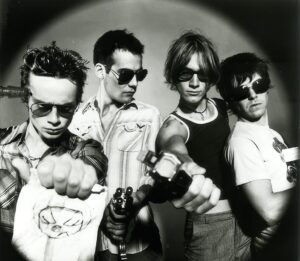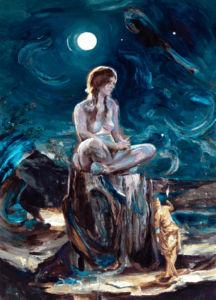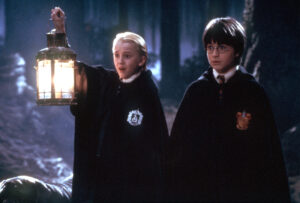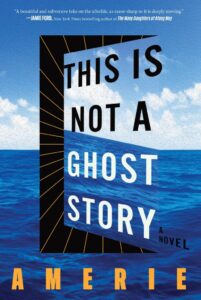Every Alanis Morissette Album, Ranked


Alanis Nadine Morissette was born in Ottawa in 1974 and began her career in show business at 12, appearing on a few episodes of the sketch comedy series You Can’t Do That on Television. A year later, she recorded her first demo, and within a few years she’d become a teen pop star in Canada, known simply as Alanis.
In 1995, Morissette made her international debut under her full name with “You Oughta Know,” a fiery alt-rock breakup song that completely rebooted her image and launched her to global fame. Her third album, Jagged Little Pill, continued spinning off more and more hits like “Hand in My Pocket” and “Ironic,” becoming one of the best-selling albums of all time.
More from Spin:
- 30 Years Gone By, and in the Meantime, Spacehog is Back
- Jeff Goldblum’s Jazz Renaissance
- Olivia Rodrigo Goes ‘House’ Shopping With David Byrne
Morissette has never come close to repeating the commercial success of Jagged Little Pill, but she’s carved out a niche as a creative, offbeat lyricist with an instantly identifiable voice. If anything, she’s perhaps her generation’s Stevie Nicks or Rickie Lee Jones, a free-spirited bohemian eccentric whose self-possessed artistic journey just happened to involve a few years of serious pop stardom.With Jagged Little Pill turning 30 on June 13, we’ve looked back at all the ups and downs of her career before and after that milestone release.
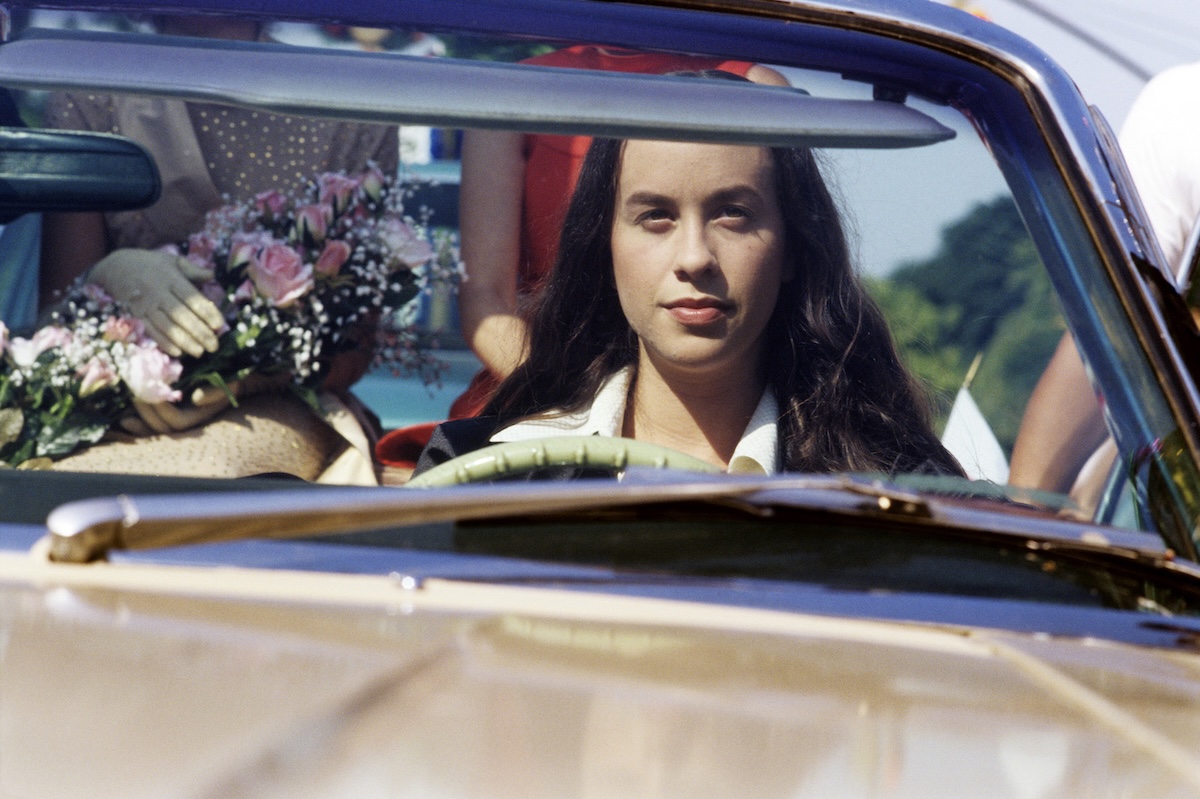
12. Now Is The Time (1992)

The music Morissette released on MCA Canada at the beginning of her career has never been released outside the Great White North, even after her rise to international fame in 1995. In fact, Maverick Records went to the extraordinary lengths of persuading MCA to take all copies of those albums out of retail circulation before her “You Oughta Know” career reboot. Those two albums of slick early ’90s dance pop, both produced and co-written by Leslie Howe of the Ottawa synth pop duo One to One, are a bit tame and dated, but they’re not so bad that they really needed to be buried. Now is the Time is definitely the weaker of mononym-era Alanis’s two albums, though, pushing listlessly towards a more tasteful aesthetic that sounds a bit like early Mariah Carey without the vocal fireworks. The album starts to get a little entertainingly weird in its final minute, when a saxophonist blows a skronky, discordant solo, and Morissette delivers a spoken bridge partly in an absurd British accent on “Big Bad Love.”
11. Havoc and Bright Lights (2012)
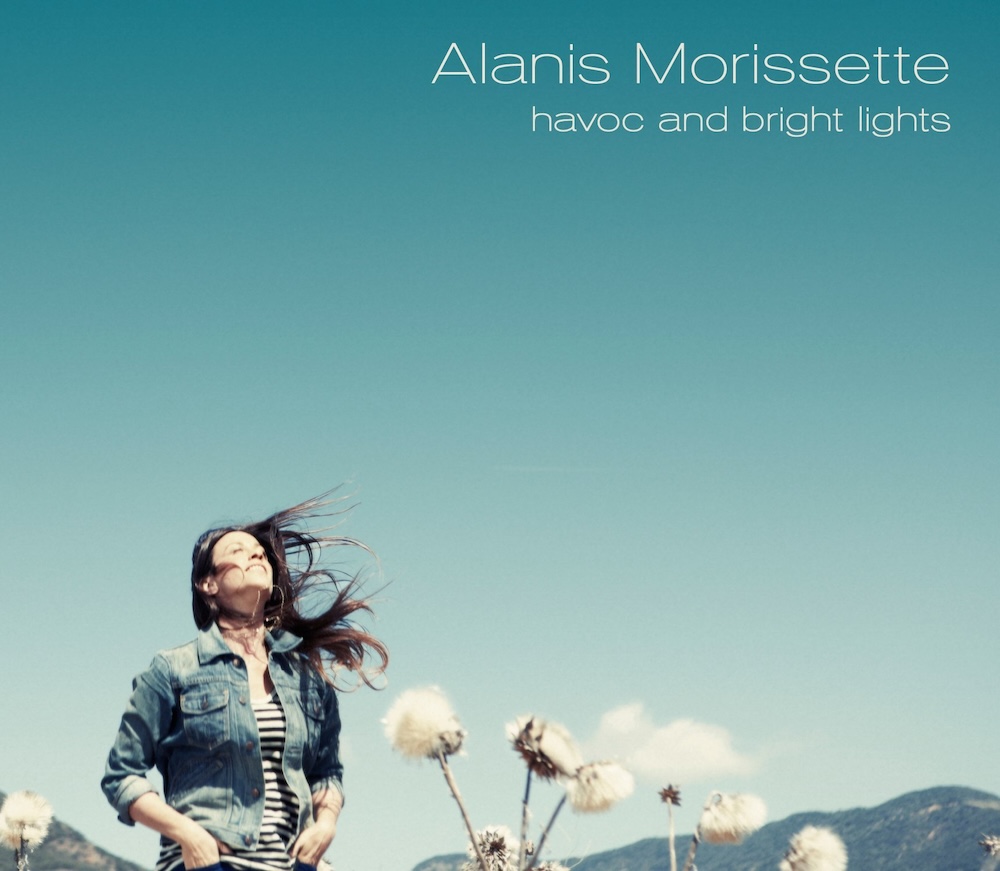
Morissette has mellowed out considerably in the years since becoming a poster girl for ’90s alt-rock angst, and by the time she made Havoc and Bright Lights, she was a wife and mother. But songs like “Empathy” and “Receive” are so exceedingly nice and earnest about topics like kindness and generosity that much of the album passes by like a frictionless feelgood collection of platitudes. Even when Morissette writes about show business with a little satirical bite on “Celebrity,” she settles for vague, snarky takedowns of easy targets. “The hook-filled collection is a solid balance between her traditional sonic tendencies and more outré influences,” Annie Zaleski wrote in the AV Club review of Havoc and Bright Lights.
10. Feast on Scraps (2002)

Morissette has always been more prolific than her album output would indicate, with dozens of songs left on the cutting room floor that have only partly trickled out as B-sides. But her only outtakes collection, the self-deprecatingly titled Feast on Scraps, was composed entirely of songs from the sessions for Under Rug Swept and packaged with a concert DVD. The eight new songs and acoustic version of “Hands Clean” don’t offer anything revelatory, but one song took on a life of its own in Brazil, where Morissette has long been particularly popular. “Offer” appeared in the Brazilian telenovela Celebridade in 2003 when Morissette played herself in a brief cameo role, and the ethereal acoustic song subsequently became hugely popular in South America, and has endured as one of Morissette’s most streamed post-’90s tracks, even in America.
9. Alanis (1991)

Alanis Morissette was 16 years old when she released a debut album that positioned her as Canada’s answer to Debbie Gibson, its production spiked with Paula Abdul-style pop funk. “Too Hot,” a new jack swing confection featuring samples of Slick Rick, Richard Pryor, and Soul II Soul, peaked at No. 14 on RPM’s Canada Top Singles chart, and Morissette won her first Juno Award, for Most Promising Female Vocalist. The music video for “Walk Away” co-starred future Friends actor Matt LeBlanc, and the song was featured in Problem Child 2. Alanis is undoubtedly a dated and derivative album, but a solidly crafted one, and “Oh Yeah” is the only song that’s so garishly goofy that you start to understand why Maverick wanted to delete her early work from public record. To her credit, Morissette hasn’t been too embarrassed to perform “Too Hot” several times, usually during Canadian tour stops, over the last 25 years.
8. Such Pretty Forks in the Road (2020)
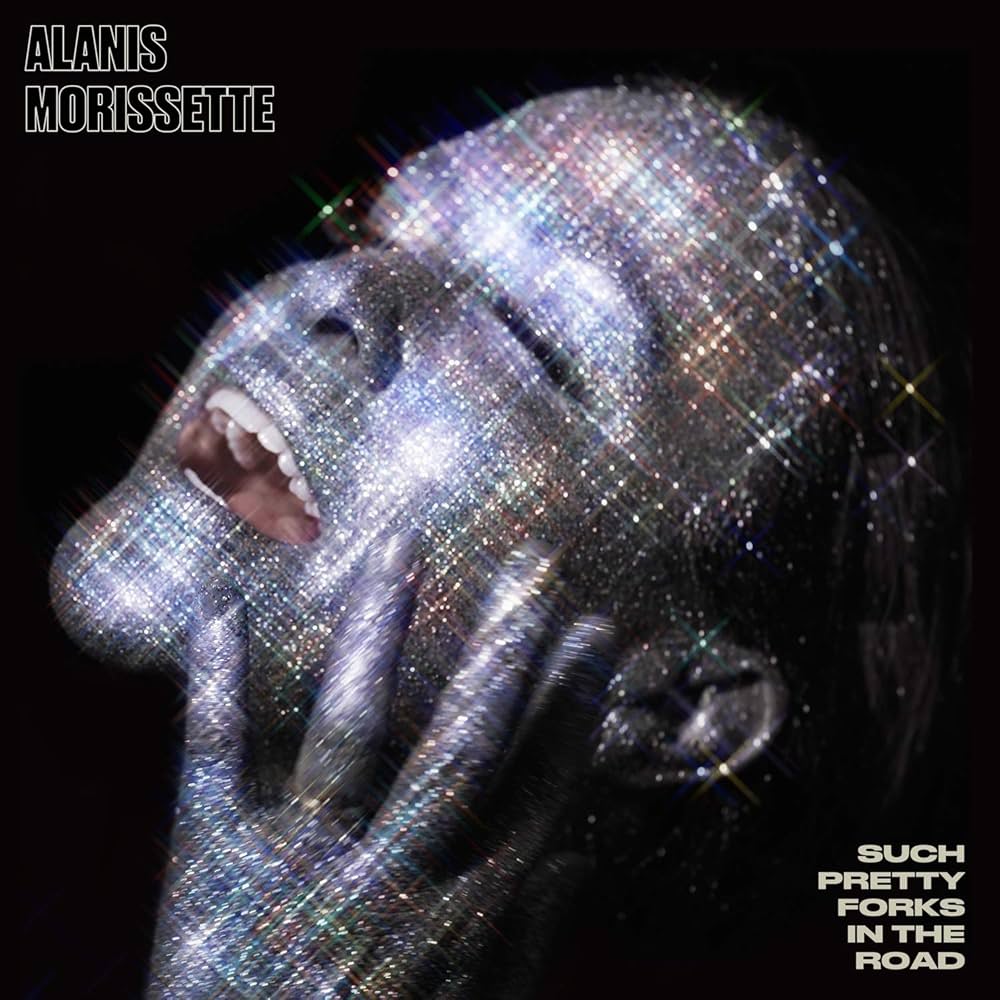
Morissette wrote the songs on Such Pretty Forks in the Road with keyboardist Michael Farrell (Morrissey, Macy Gray), who also became the musical director of her touring band. And slow, piano-driven tracks like “Missing the Miracle” and “Losing the Plot” make for a sometimes drab listening experience, especially given that Morissette’s voice has become a little strained and raspy with age. The compelling, cathartic honesty that Morissette built her name on does come to the surface, however, when she writes about postpartum depression on “Diagnosis” and alcoholism on “Reasons I Drink.” “By Morissette’s standards, Pretty Forks is a vulnerable, sedate, ballad-heavy album,” Katherine St. Asaph wrote in the Pitchfork review.
7. MTV Unplugged (1999)

Morissette peppered her acoustic set at the Brooklyn Academy of Music for MTV Unplugged with four songs that have never appeared on her studio albums, including the B-side “These R the Thoughts” and the haunting City of Angels soundtrack hit “Uninvited.” “You Oughta Know” is rendered darker and more dramatic with an arrangement heavy on piano and cellos, and her excellent cover of the Police classic “King of Pain” was released as a single from the live album.
6. Flavors of Entanglement (2008)

Morissette covered the Seal hit “Crazy” for her 2005 retrospective The Collection, and then made her next two albums with “Crazy” co-writer and co-producer Guy Sigsworth. The glitchy electronics on the brooding rockers “Moratorium” and “Straitjacket” sound like they might have been listening to Linkin Park in the studio, a surprising sonic pivot that Morissette pulls off better than you might expect. She may be known for some of her angrier songs about exes, but Flavors of Entanglement, released a year after she broke off her engagement to Canadian actor Ryan Reynolds, features breakup songs like “Torch” that are more fond and bittersweet than vengeful.
5. Under Rug Swept (2002)

Madonna founded Maverick Records in 1992, and the label’s multiplatinum success stories included Candlebox, the Prodigy, and Morissette. The Queen of Pop never appeared to be heavily involved in the company’s A&R process, but when Morissette threatened to leave the label in the early 2000s, it was Madonna who personally intervened and persuaded the label’s best-selling act to stay, at least for the next three albums. Under Rug Swept is Morissette’s only fully self-produced album, and she played many of the guitars and keyboards herself, as well as collaborating with rockers like Flea of Red Hot Chili Peppers and Dean DeLeo of Stone Temple Pilots. The lead single “Hands Clean” was boldly confessional even by Morissette’s standards, turning her complicated memories of a teenage sexual relationship with an older man into a tuneful Top 40 hit. “The processed guitar-based tracks on Rug don’t quite rollick or shimmer, but with Alanis it’s the lyrics, not the music, that count,” Laura Sinagra wrote in the SPIN review of the album.
4. The Storm Before the Calm (2022)
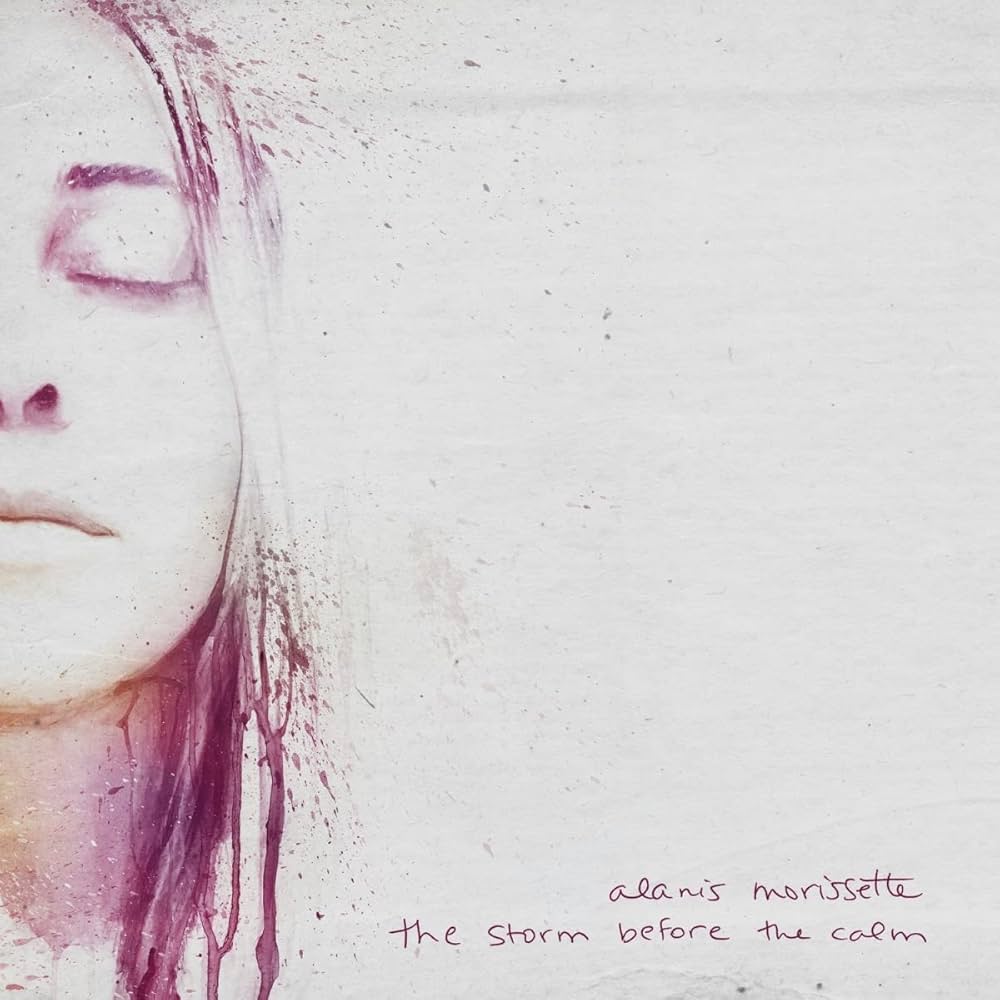
Alanis Morissette’s 10th studio album, The Storm Before the Calm, was a major departure from her conventional verse/chorus/verse pop songwriting. Morissette described the sprawling 106-minute set as a “meditation album,” and released it on streaming services as well as the meditation app Calm. And it’s pretty adventurous for a record that’s meant to be soothing and unobtrusive, with Morissette playing percussion and flute and occasionally wordlessly singing, alongside an ensemble including respected Brooklyn indie musicians like Dave Harrington (Darkside, Lights Fluorescent) and Stuart Bogie (Antibalas, TV on the Radio). It may not be an important entry in the canon of ambient music like Brian Eno’s Discreet Music, but it’s an intriguing new path for Morissette to go down 30 years into her recording career. And the standout “Mania—Resting in the Fire,” with its heavily distorted vocals over densely polyrhythmic drumming, might even be a little too intense to meditate to.
3. So-Called Chaos (2004)

Big budget major label albums tend to be so frontloaded with potential hits that it’s surprising to hear So-Called Chaos’s lead single “Everything” as the album’s closing track, but it’s smart sequencing that makes the blissfully contented song hit harder. Morissette became the fifth most successful female artist in the history of Billboard’s Modern Rock chart almost solely from her ’90s work. But So-Called Chaos rockers like “Eight Easy Steps” and “Excuses” make a strong case that Morissette kept on making songs that would’ve sounded great on alt-rock radio alongside the latest Green Day and Incubus tracks.
2. Supposed Former Infatuation Junkie (1998)
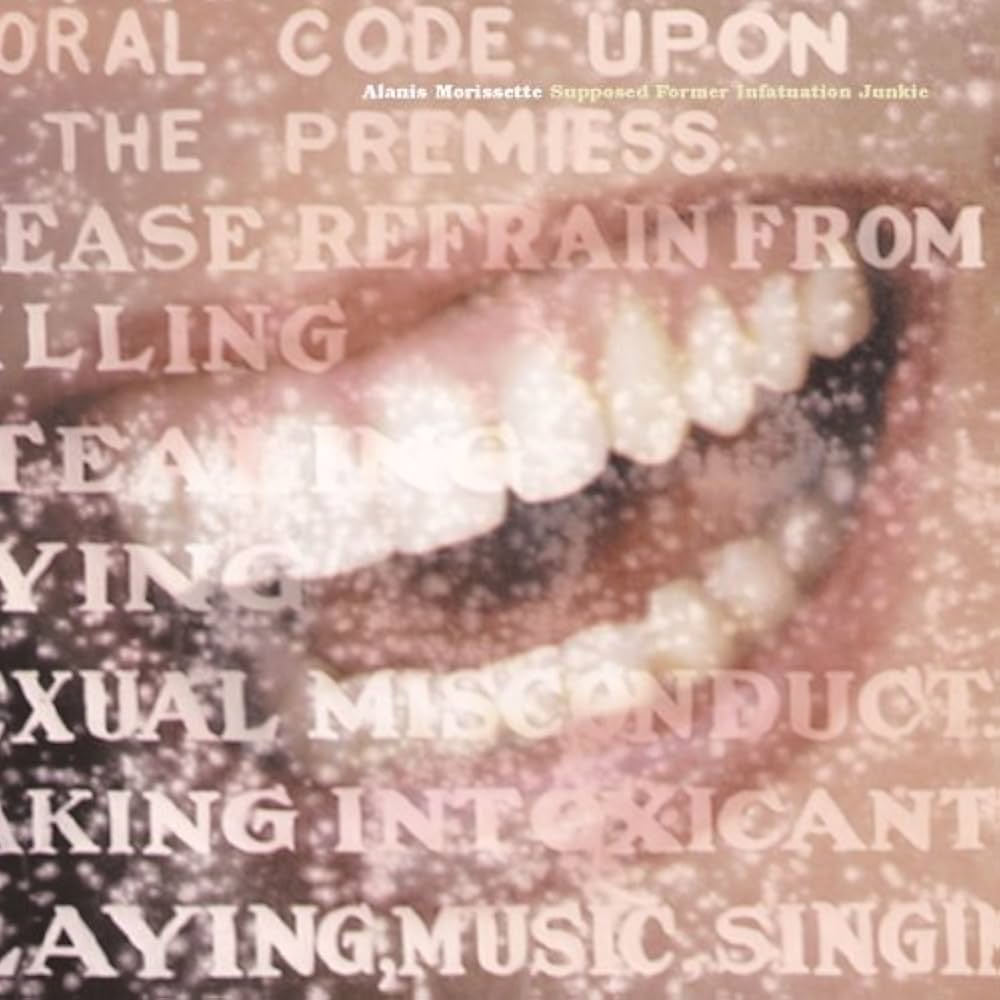
Glen Ballard had worked on chart-toppers by Michael Jackson and Wilson Phillips, but he transformed from a journeyman writer/producer to a brand name hitmaker after his work on Jagged Little Pill. Morissette and Ballard only made one more album together, but Supposed Former Infatuation Junkie was a wildly ambitious, fascinatingly overstuffed follow-up that threw a dizzying array of words and sounds at Morissette’s massive fanbase. There’s vertiginous feedback on guitar-driven rockers like “Baba,” and trip hop vibes on the tabla-driven “The Couch” and the album’s only major hit, “Thank U,” which is driven by a booming Sly & the Family Stone breakbeat. “The mammoth riffs, diaristic self-analysis, and pretentious Middle Eastern sonorities of this music mark it as ‘rock,’ albeit rock with tunes. And in this context I suck it up, feeling privileged to listen along with all the young women whose struggles Morissette blows up to such a scale. Here’s hoping lots of young men feel the same,” Robert Christgau wrote in the Village Voice review of Supposed Former Infatuation Junkie.
1. Jagged Little Pill (1995)

You know all about Jagged Little Pill’s enormous success: 30 million copies sold worldwide, five Grammys, a string of ubiquitous singles, and a hit Broadway musical adaptation. And I have to admit, I wasn’t all that into Alanis Morissette at the time, outside of “All I Really Want” and maybe “Head over Feet.” But the girl I was infatuated with throughout middle school loved Jagged Little Pill. Maybe listening to her rave about Morissette instead of trying to get her to listen to Sonic Youth was when I learned that it can be as fun to listen to people talk about their favorite album as it is to tell them about yours. And when I listen to Jagged Little Pill now, I can hear what my unrequited crush loved about it, in all its rage, humor, and relentless hooks.
To see our running list of the top 100 greatest rock stars of all time, click here.
